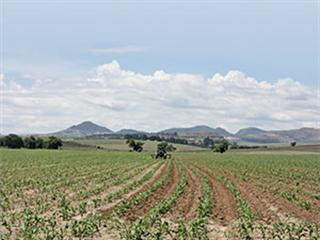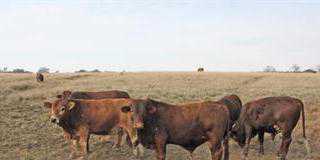
How big a role will land play in the 2014 general election?
It is no secret that government will be raising land as an issue during the election. But it is an overstatement to say that it will base its whole campaign on it. People react emotionally to land issues and neglect to do the most basic thing, which is looking at government policy. The business environment and organised agriculture is screaming for the National Development Plan (NDP) to be implemented.
But when President Jacob Zuma holds a meeting with organised agriculture and discusses the concept of a land redistribution committee, then agriculture is up in arms. This proposal is in the NDP. If organised agriculture has a logical reason why the committee should not be implemented then it should express it. The committee is there to see what land is unproductive and how it can be used to benefit the country.
Politicians might make exaggerated statements to impress voters, but government’s position is clearly spelt out in the Green Paper on Land Reform. During the election campaign the ANC will try to make the Green Paper look new and exciting. In reality, government has abolished the willing-seller willing-buyer principle at least five times. This principle hasn’t been policy for a number of years. It’s not new and it won’t change how things are done. Government has never expropriated land without compensation and has always paid a fair price for land.
Government is currently celebrating the 100 year anniversary of the 1913 Native Land Act which dispossessed many people. Is pressure mounting for government to deliver on its promise to give back ‘stolen’ land?
The Green Paper has not come about because government wants to take land, but because of pressure from NGOs. But there is no significant pressure to expropriate agricultural land. Government has never said that it is going to dish out land left, right and centre. It wants the courts to decide on the price paid for farms and this does not imply some whacko promise to take land away from the rich and give it to the poor.
What most people are missing in this debate is that the majority of land in South Africa is lousy for farming. Only about 3% of land is highly arable, 8% is adequate and the rest is poor. Black people who live on farms understand this. When we do our research and ask black people what they deem more important – land redistribution or jobs and education – the answer is always the latter.
It’s not correct to say that all black people don’t want land, but our research shows that the majority don’t see it as a way out of poverty. The idea that the average black man wants land for status and to sit and watch his cattle is a 20-year-old fantasy. There is no evidence that this desire exists and we’ve done the research. To think this is to be prejudiced.
The period before Mangaung saw a lot of cheap politicking. Will it be more of the same before the 2014 election?
Delegates at Mangaung expressed concern over Moody’s credit rating downgrade and the widely reported loss of investor confidence. For this reason, they toned down the economic debate that took place there so as not to further upset the markets. There was a deliberate attempt to send out a market-friendly message. Government has learnt from last year and become aware that it needs to be careful of what it says. And Treasury and the Reserve Bank will remind it of that.
But pre-election campaigns will always mean there are many politicians running around making statements. It’s not always possible to silence people and there is no guarantee that someone won’t say something that will upset market sentiment. However, it is unlikely that they will campaign to the point where there will be such negative repercussions for the economy that it will be difficult to govern when it wins the election.
What effect does this kind of politicking have on reducing investor confidence?
We must realise that investors are not a group of far-removed people sitting in New York or London. The biggest spurt of growth in any economy comes from local investors, and international investors take their cue from the locals. What matters is the relationship between local businesses and government. It is in the interest of domestic businesses to realise that they live in a democracy and this has advantages and disadvantages.
The good thing is that if they have a point of view, they can express it. But so can everyone else, whether you agree with them or not. When will nasty people stop saying nasty things? Never! The issue is whom is being listened to and what is government policy. What are the concrete decisions being made? Some investors understand this, others don’t.
South Africa as a whole is on the right track. We are not falling apart. Limpopo might not have any textbooks, but 18 years ago they didn’t have any schools. Education has been a disaster in this country since 1954. The biggest issue we have had to deal with since 1994 is dealing with the massive problems we inherited from the previous government without disturbing the economy.
How we are doing in this regard is a mixed story. And the blame can’t solely be placed on the shoulders of government. We are all playing a role. Last year’s census told us two stories. One was that government was doing well in terms of service delivery. More people have access to water and electricity than before. Some 15 million people receive grants, which our research shows are being used to kick-start local economies. Because of grants, people are standing in supermarket queues where before there were no supermarkets.
Secondly, it is clear that we have not progressed in terms of income distribution. The economy is the real problem in the South African landscape and everyone needs to start talking to each other to fix it.
Contact Prof Steven Friedman on 011 559 1937.













